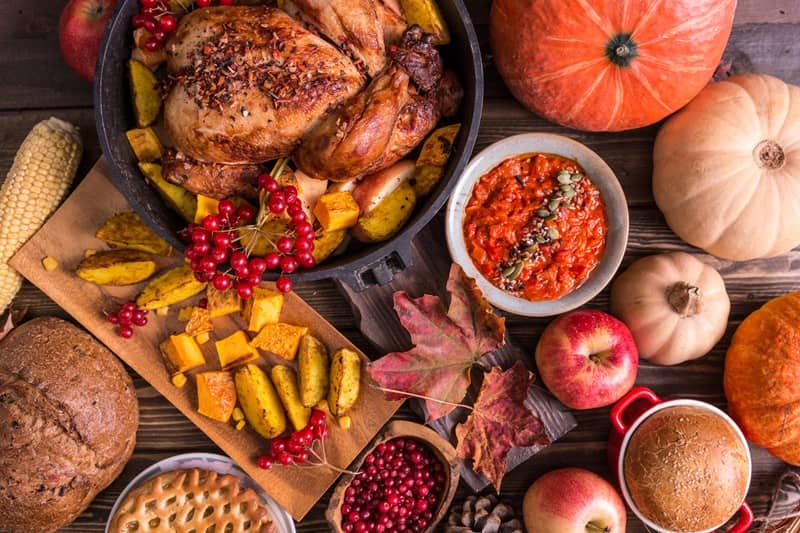The Most Unique And Misunderstood U.S. Holiday: Thanksgiving!

By Parents’ Rights In Education
Every November, American families gather around tables packed with food, traditions, and gratitude. But for many of our children, the story behind Thanksgiving has quietly—and in some cases intentionally—shifted. Instead of learning about perseverance, faith, cooperation, and the founding values that shaped this nation, too many students encounter rewritten narratives that distort or erase the meaning of this uniquely American holiday.
As Parents’ Rights In Education (PRE), we champion facts, context, truth, and parental authority. Understanding the real history of Thanksgiving is not just about correcting myths—it’s about safeguarding the cultural literacy and civic knowledge every child deserves.
Here are the three biggest misconceptions, along with what parents need to know.
Misconception #1: “Thanksgiving is a fabricated myth invented to cover up oppression.”
This narrative has become increasingly common in modern curricula. Instead of teaching children about cooperation between the Pilgrims and the Wampanoag people, some programs frame Thanksgiving as inherently harmful or fictional.
The Truth:
Thanksgiving originated from a real, documented harvest celebration in 1621, shared by the Pilgrims and the Wampanoag. It was a moment of mutual assistance and gratitude, not propaganda.
Misconception #2: “The Pilgrims came to America for land and conquest.”
Some classrooms now teach the Pilgrims as economic opportunists or colonizers with a predetermined motive.
The Truth:
The Pilgrims were religious refugees, seeking freedom of worship. Their hope for liberty—and their struggle to survive—laid the groundwork for many of the freedoms we cherish today.
Misconception #3: “Thanksgiving is only about celebrating the past.”
Some modern education materials reduce Thanksgiving to a cultural artifact rather than a living tradition.
The Truth:
From the Pilgrims’ prayerful gratitude to Lincoln’s national proclamation, Thanksgiving has always been a reminder to practice humility, thankfulness, and unity in the present.
Why This Matters for K–12 Education
When Thanksgiving is misrepresented, students lose more than historical detail—they lose essential cultural and civic knowledge. Accurate Thanksgiving instruction teaches cooperation instead of cynicism, highlights religious liberty as a cornerstone of American life, and reinforces gratitude as a powerful tool for emotional and academic resilience. Together, these truths help children understand their rights, appreciate their heritage, and build character. Replacing them with politicized narratives undermines students’ connection to history, weakens their critical thinking, and distances them from the values families teach at home.
MY TAKE: Why This Matters Now
By Suzanne Gallagher, Executive Director, Parents’ Rights In Education
When Thanksgiving is misrepresented in classrooms, students lose more than historical detail—they lose vital connection to the values that shaped our nation. Accurate Thanksgiving instruction teaches cooperation rather than cynicism, highlights religious liberty as a cornerstone of American life, and reinforces gratitude as a powerful tool for emotional and academic resilience. These truths help children understand their rights, appreciate their heritage, and build strong character.
- When schools rewrite history, they weaken the foundation our children stand on.
Our kids deserve an honest education—one based on fact, context, and heritage, not ideological reinterpretation or revisionism. - Gratitude is more powerful than grievance.
Thanksgiving offers one of the few remaining opportunities to teach children gratitude—something proven to build resilience, humility, and stronger families. When schools downplay gratitude or replace it with political narratives, students lose the very lessons that help them grow into grounded young adults. - Parents—not institutions—must lead this conversation.
No district or curriculum developer should decide which parts of American history your child gets to hear. Thanksgiving allows parents to take back that role: tell the real story, model gratitude, and strengthen your family’s bond to our country’s founding principles.
This holiday is an opportunity for families to reclaim the narrative—and to remind our children that America’s founding story is worth knowing, honoring, and preserving.
What Parents Can Do
- Review what your local district teaches about Thanksgiving
- Request curriculum transparency
- Opt Out of lessons that undermine your family’s values
- Join or start a local PRE SD Affiliate
- Encourage your school board to adopt fact-based history standards
Thanksgiving is a celebration of gratitude—but also of clarity.
Together, we can ensure the next generation receives both.

